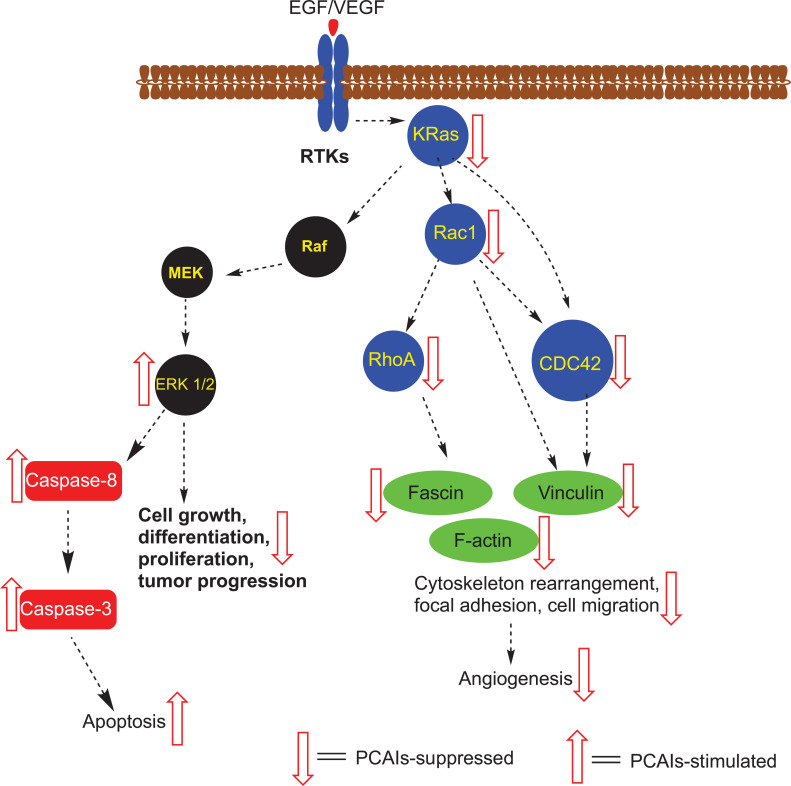Fig. (6).
Cellular processes inhibited by the PCAIs suggest interactions with receptor tyrosine kinase (RTKs) signal transduction pathway intermediates. Polyisoprenylated proteins (blue circles) are the most likely direct targets of the PCAIs as they are depleted from cancer cells treated with the analogs. Fascin and vinculin that contribute to the formation of focal adhesion complexes are also depleted. In combination with the inhibition of F-actin, processes that depend on the filamentous actin cytoskeleton and focal adhesion, such as cell migration and angiogenesis, are largely abolished at low to submicromolar concentrations of the PCAIs. Cancers with such drivers as the growth factors EGF and VEGF and the RTKs, which occur upstream of the polyisoprenylated proteins, are also prone to inhibition by virtue of their dependence on the G-proteins as signaling mediators. (A higher resolution / colour version of this figure is available in the electronic copy of the article).

